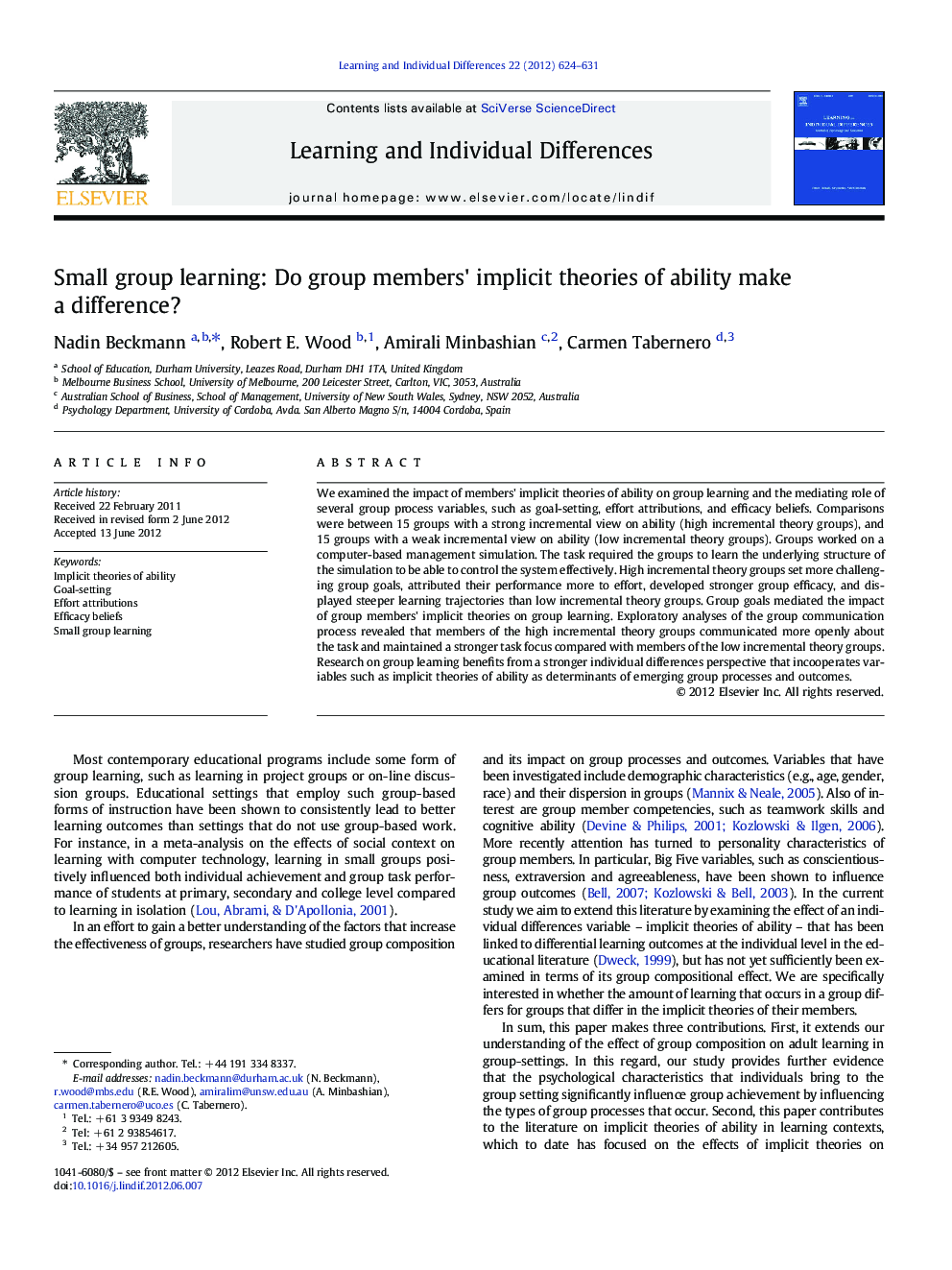| Article ID | Journal | Published Year | Pages | File Type |
|---|---|---|---|---|
| 365008 | Learning and Individual Differences | 2012 | 8 Pages |
We examined the impact of members' implicit theories of ability on group learning and the mediating role of several group process variables, such as goal-setting, effort attributions, and efficacy beliefs. Comparisons were between 15 groups with a strong incremental view on ability (high incremental theory groups), and 15 groups with a weak incremental view on ability (low incremental theory groups). Groups worked on a computer-based management simulation. The task required the groups to learn the underlying structure of the simulation to be able to control the system effectively. High incremental theory groups set more challenging group goals, attributed their performance more to effort, developed stronger group efficacy, and displayed steeper learning trajectories than low incremental theory groups. Group goals mediated the impact of group members' implicit theories on group learning. Exploratory analyses of the group communication process revealed that members of the high incremental theory groups communicated more openly about the task and maintained a stronger task focus compared with members of the low incremental theory groups. Research on group learning benefits from a stronger individual differences perspective that incooperates variables such as implicit theories of ability as determinants of emerging group processes and outcomes.
► Implicit theories of ability are an important antecedent of group learning. ► We compare high incremental theory groups with low incremental theory groups. ► The strong belief that ability is malleable facilitates group learning irrespective of group ability. ► This effect operates through group members' differential responses to the task.
